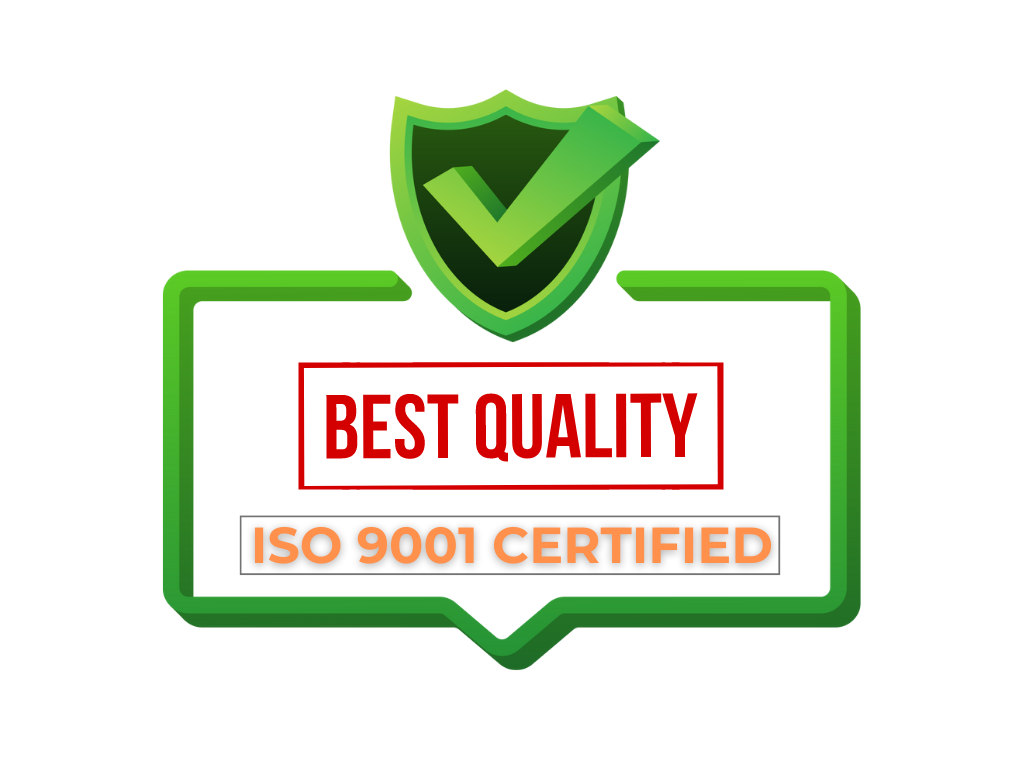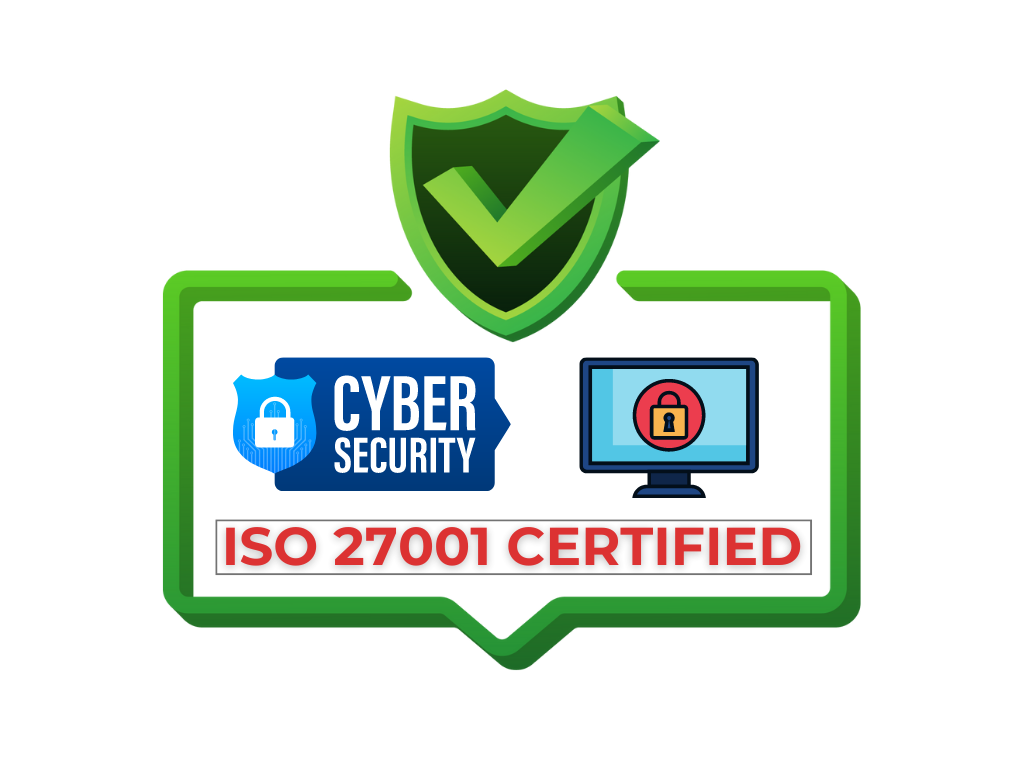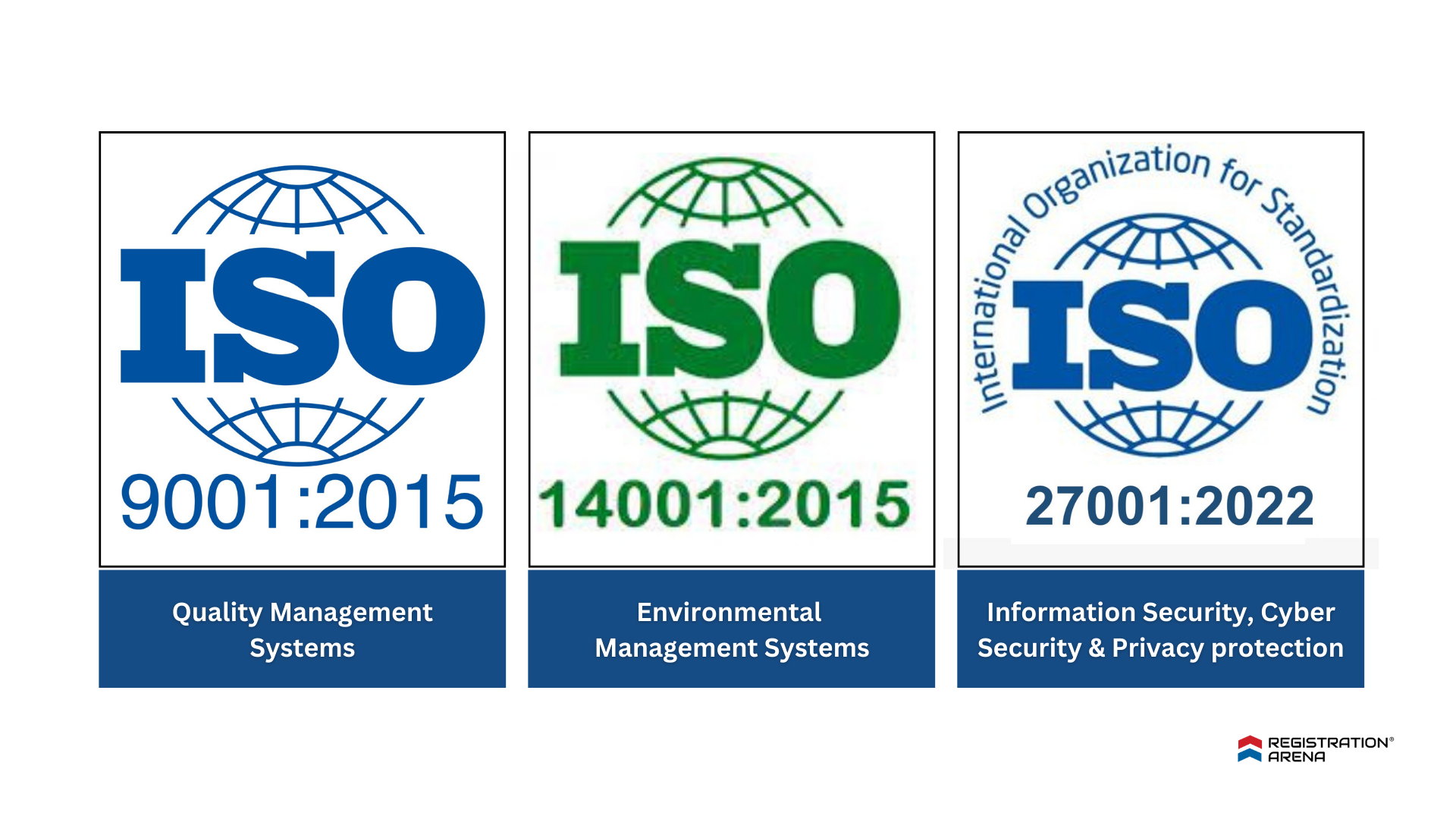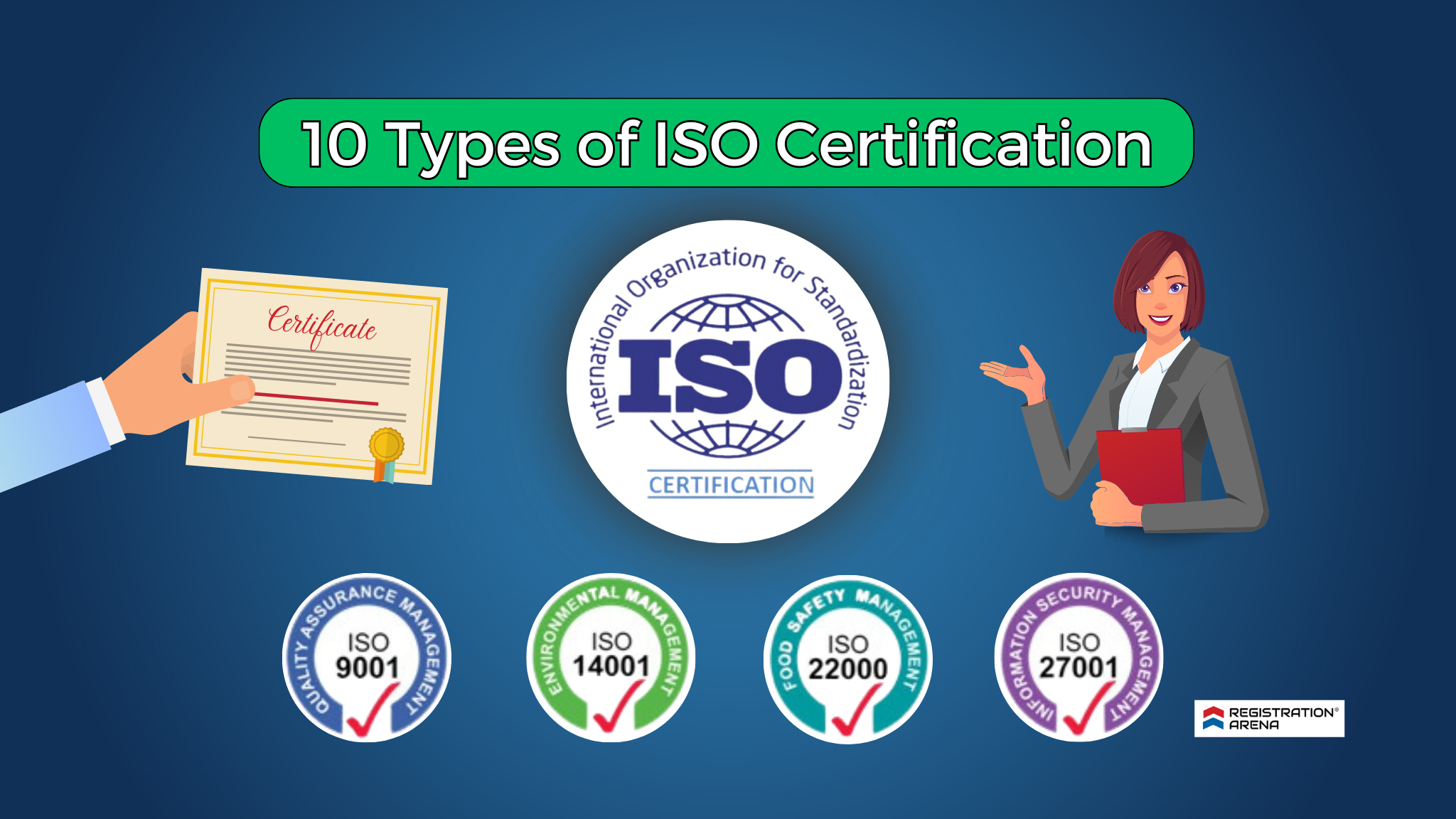The business environment is very competitive today and therefore, organizations try to put their best foot forward to establish their reputation, maintain credibility, efficiency, quality, etc. Getting certified is one such effective technique to ensure compliance with all such factors. Also, it confirms that your goods or services meet customers’ expectations. ISO i.e., International Organization for Standardization offers various certificates to businesses all around the world that demonstrate environmental sustainability, commitment to quality, etc. In this blog, we will explore the meaning and different types of ISO certification along with their importance for businesses.
First, let us understand the meaning of ISO certification.
What is the Meaning of ISO Certification?
ISO, which stands for International Organization for Standardization, is an independent, non-governmental organization that operates on an international level. ISO develops and publishes global standards relating to quality, efficiency, safety, etc. Currently, standards bodies of 168 nations are members of the ISO.
ISO certification is the process of obtaining formal recognition for meeting the standards set by the ISO and implies that the systems and processes of an organization comply with ISO standards.
Moreover, it gives assurance to the stakeholders of an organization like customers, investors, media, etc. that the organization has adopted the best and internationally recognized practices.
Different Types of ISO Certificates
Now that we know the meaning of ISO-certified organization, let us look at how many types of ISO certifications there are and which of them you can obtain for your business.
ISO has published 24,803 standards till date. These standards cover different aspects of manufacturing, management, and technology. However, some of the widely recognized and used ISO standards or certificates are as follows.
ISO 9001: 2015 – Quality Management Systems

ISO 9001 is one of the widely recognized ISO standards or certifications. It belongs to the ISO 9000 family. ISO 9001 is used for the creation, implementation, and management of a Quality Management System’. In simple words, this standard helps develop criteria for improvement in efficiency, quality, and management of the organization.
In addition, this certification is obtained by organizations that need to demonstrate their ability to produce products and services as per the requirements of the customers and applicable law. Moreover, this standard was last published in 2015 and therefore, it is commonly known as ISO 9001: 2015.
ISO 14001: 2015 – Environmental Management Systems

Last published in 2015, ISO 14001 is another popular ISO standard or certification. Just like ISO 9001, it gives requirements for an ideal environmental management system. Therefore, it is used by organizations for improving their environmental performance, fulfilling their compliance requirements, and achieving their environmental objectives.
However, to obtain this certification, the environmental management system of the organization shall be as per the requirements of this standard.
ISO 27001: 2022 – Information Security, Cyber Security, and Privacy Protections

ISO 27001 is the best standard in the world for securing or protecting confidential information. It provides guidelines for the establishment and maintenance of ISMS i.e. Information Security Management System. This standard helps an organization in managing security risks related to information. Therefore, if you want to protect confidential information related to business, you should adopt this standard.
In other words, if an organization has ISO 27001 certification, it means that the organization is recognized to keep its information secure and safe, and the system is based on principles provided by ISO 27001. Further, this standard was last published in 2022.
ISO 22000: 2018 – Food Safety Management Systems

Published in 2018, ISO 22000 gives the requirements for an ideal Food Safety Management System (FSMS). It enables an organization to:
- Plan and implement FSMS
- Evaluate food safety requirements
- Communicate food safety-related issues to interested parties
- Ensure that it complies with the stated policy for food safety, etc.
In simple words, we can say that it helps an organization that is a part of the food chain, to ensure that it follows the best practices for food safety.
ISO 50001: 2018 – Energy Management

ISO 50001 provides the requirements for the establishment and maintenance of EnMS i.e., Energy Management System. Organizations that are committed to efficient energy management and resource conservation should adopt this standard. It helps them in improving their energy performance.
Moreover, to obtain this certification, an organization shall demonstrate continuous improvement in its energy performance. Further, this standard was last published in 2018.
ISO 31000: 2018 – Risk Management

ISO 31000 provides guidelines on organizational risk management. It lays down the process, principles, and framework of risk management. We know that an organization needs to manage risk on a continuous basis and therefore, this standard is very useful. Also, it can be applied to all levels and activities throughout the organization.
In simple words, if an organization has ISO 31000 certification, it means that the risk management system of the organization is effective and it is identifying, analyzing, assessing, and handling the risk in a systematic manner.
Further, this standard was last published in 2018.
ISO 20000: 2018 – IT Service Management

ISO 20000 gives the requirements for the establishment and maintenance of SMS i.e., Service Management System. It helps an organization in meeting service requirements and delivering value. In addition, it assists service providers in monitoring and reviewing their system, Further, if an organization has this certification, it assures the customers regarding the quality of services provided.
In other words, this certification is obtained by organizations that need to demonstrate their capability to improve designing and delivery of services. Further, this standard was last published in 2018.
ISO 26000: 2010 – Social Responsibility

ISO 26000 provides guidance to organizations on principles, practices, and issues regarding social responsibility. In addition, this standard assists in increasing engagement with stakeholders and in the promotion of socially responsible behavior in the entire organization. Therefore, the intention behind this standard is to encourage organizations to contribute to sustainable development.
In addition, it is expected from organizations (that intend to obtain this certification) that they consider cultural, legal, political, environmental, societal, and organizational diversity in their behavior.
Further, this standard was last published in 2010.
ISO 45001: 2018 – Occupational Health and Safety

ISO 45001 provides the requirements for the establishment and maintenance of the ‘Occupational Health and Safety (OH&S) Management System’. It gives guidance to organizations on how they can prevent injury at the workplace and eliminate hazards. Therefore, it helps an organization in developing a safe and healthy workplace ensuring employee safety and providing safer working conditions to them.
However, to obtain this certification, the OH&S management system of the organization shall be properly compliant with the requirements of the standard. Further, this standard was last published in 2018.
ISO 20121: 2012 – Sustainable Events

ISO 20121 gives the requirements for the establishment and maintenance of an ‘Event Sustainability Management System’. In simple words, it enables an organization engaged in event management or in any event-related activity to make the event sustainable in social, economic, and environmental terms.
Therefore, it helps in ensuring that the negative impact of an event is minimized for e.g., excessive use of natural resources like water, energy, etc. in any event. Further, this standard was last published in 2012.
Comparative Chart Showing Benefits and Applicability of Popular ISO Certifications
Benefits | Applicability | |
| ISO 9001: 2015 – Quality Management Systems | ||
| Applicable to all organizations irrespective of type, size, products, services, etc. | |
| ISO 14001: 2015 – Environmental Management Systems | ||
| Applicable to all organizations irrespective of type, size, nature, etc. | |
| ISO 27001: 2022 – Information Security, Cyber Security, and Privacy Protection | ||
| Applicable to organizations operating in the Information Technology industry. However, organizations of other sectors can adopt it as well. | |
| ISO 22000: 2018 – Food Safety Management Systems | ||
| Applicable to all organizations in the food chain irrespective of complexity and size. | |
| ISO 50001: 2018 – Energy Management | ||
| Applicable to all organizations irrespective of type, size, products, services, etc. | |
| ISO 31000: 2018 – Risk Management | ||
| Applicable to all organizations irrespective of industry, sector, or activity. | |
| ISO 20000: 2018 – IT Service Management | ||
| Applicable to organizations that are engaged in the management and delivery of services to customers. | |
| ISO 26000: 2010 – Social Responsibility | ||
| Applicable to all organizations irrespective of location or size. | |
| ISO 45001: 2018 – Occupational Health and Safety | ||
| Applicable to all organizations irrespective of activities, type, and size. | |
| ISO 20121: 2012 – Sustainable Events | ||
| Applicable to organizations operating in the event management industry. | |
What are the Top 3 Most Popular ISO Standards/ Certificates?
Although there are many popular ISO standards, the following are the top 3 most popular ISO standards or certificates.

Importance of ISO Certification for Businesses
The following points show the importance of ISO certification for businesses.
Improved Productivity
To get an ISO certification, a business must define and document different processes. In addition, a business should develop mechanisms for monitoring its progress. All of these help in improving the productivity of the business.
International Trading Opportunities
Businesses that have ISO certification can compete on an international level as their products are considered to be of higher quality. Therefore, ISO certification helps in reducing barriers to international trade.
Increased Customer Confidence
We know that customer satisfaction and loyalty are essential for any business. ISO certification proves that the business complies with international standards relating to quality, sustainability, etc. Therefore, it helps boost the customers’ confidence, which in turn increases revenue for the business.
Enhanced Credibility and Recognition
ISO certification enhances the credibility of businesses as the standards are recognized on a global level. In addition, reducing costs leads to improvement in market efficiency, and therefore businesses can get wider recognition.
Employee Satisfaction and Engagement
To get an ISO certification, a business should properly manage its workforce. Therefore proper workforce management and a better workplace environment contribute to employee satisfaction. In addition, such businesses can retain employees for a longer period.
Conclusion
In conclusion, we can say that ISO certification not only enhances the credibility of an organization but also leads it on the pathways of growth and excellence. Therefore, it is important to have an understanding of different types of ISO certification so that you can obtain the most suitable one for your organization.
We at Registration Arena are dedicated to assisting you in obtaining an ISO certificate for your organization. Our experts will guide you through the process and all the documents that are required for the same. Reach out to us through Call/ WhatsApp at +918600544422 or write to us at support@registrationarena.com.



